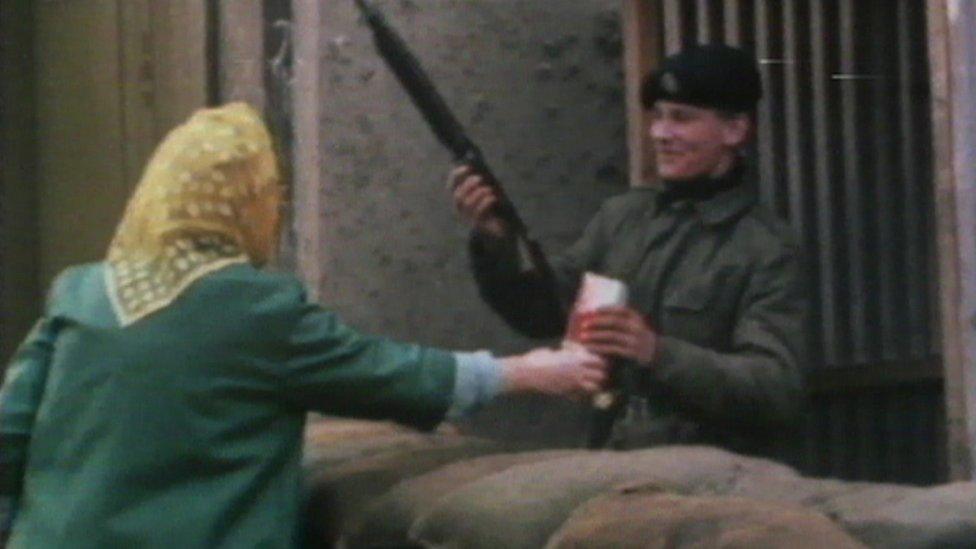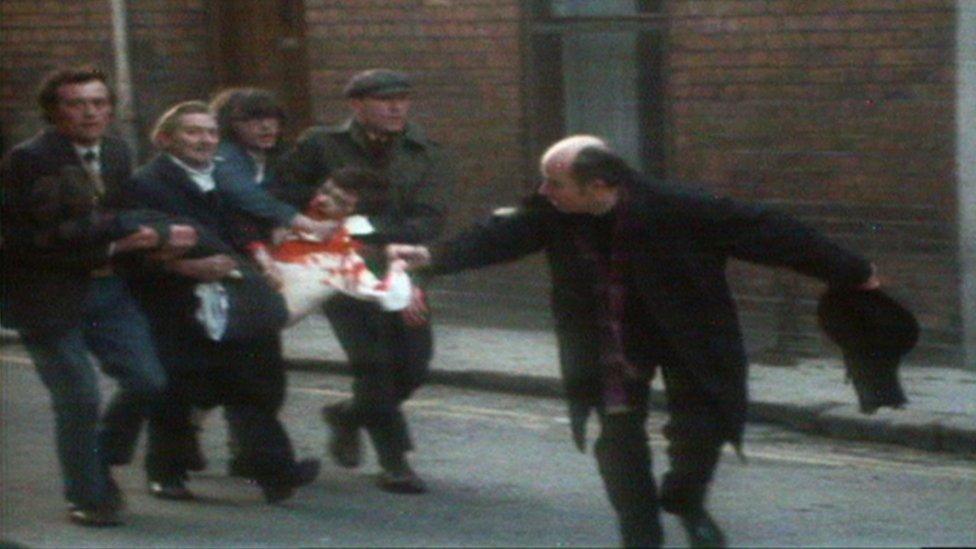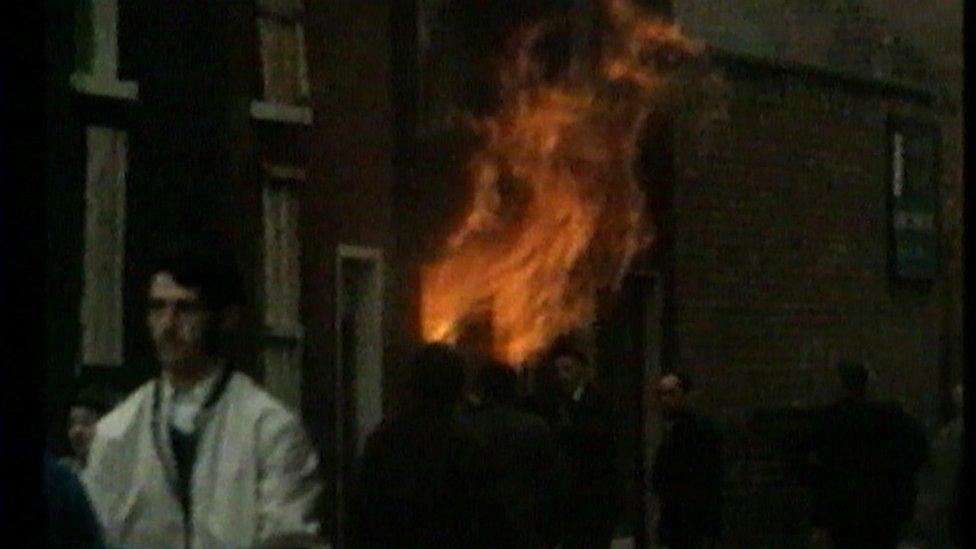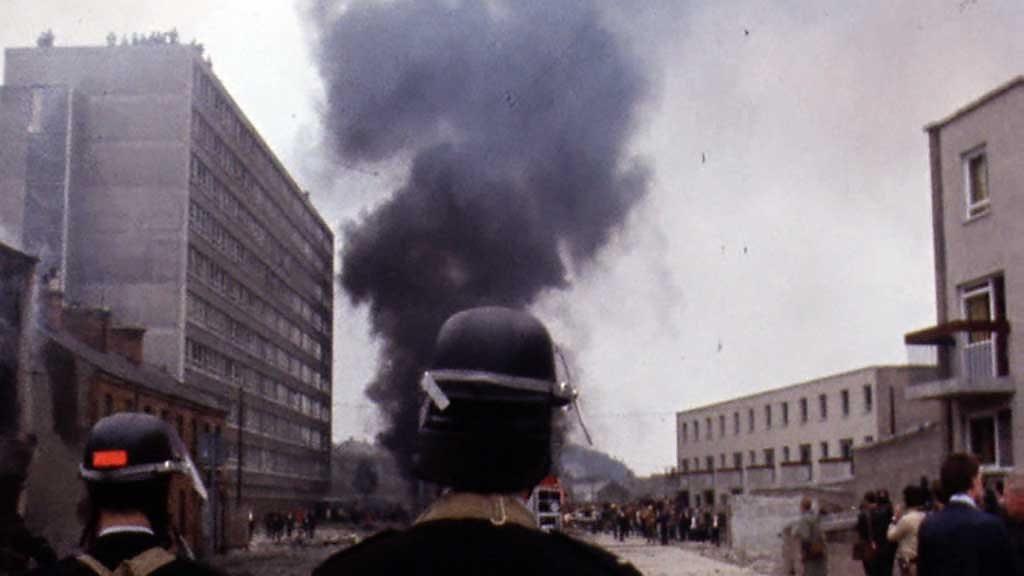The Troubles: How 1969 violence led to Army's longest campaign
- Published
What was it like being in the security services during the Troubles?
When the boots of 300 soldiers hit the ground in Londonderry in August 1969, so began the longest continuous campaign in British military history.
The plan was to restore public order and be out in a matter of days.
The enduring image is of young soldiers being served cups of tea as they protected Catholic areas from sectarian attack.
But weeks turned to years and Operation Banner, as the Army refers to the Troubles, lasted from 1969 to 2007, costing it hundreds of lives.

Soldiers were initially welcomed into parts of Northern Ireland as rioting was taking place
Paul Young was a soldier in the Household Cavalry who served in Northern Ireland during the early years of the Troubles.
It was a shock to the system.
"Nobody had been trained to do civil disorder, policing in what was basically developing as a very nasty, dirty civil war," he said.
'A turkey shoot'
The Northern Ireland government at Stormont had asked the UK for troops to be sent in after days of violence, which had erupted in towns and cities.
Police were exhausted and had struggled to cope.
James Willis, a police officer in the Royal Ulster Constabulary, recalls the first soldiers to arrive.
"In the Bogside (in Londonderry) they were cheered and welcomed in," he said.
"But it was only a few weeks later when the whole thing kicked off again and the troops were attacked.
"It was at that point I realised this was not going to work, it is not something which was going to be handled by sheer force."
Amid civil strife, the Provisional IRA was soon born and the police and Army became open targets in a campaign of murder and violence, which sought to end British rule.
Archive footage shows how some people were burnt out of their homes as fighting broke out in Belfast
Paul Young remembers patrolling Belfast.
"Literally every day we were under threat," he said.
"We were constantly being shot at from various parts of west Belfast.
"It was a turkey shoot for them."
'Bloody Sunday exacerbated conflict'
Military dominance was elusive as the 1970s descended into bloody chaos.
In 1972, the Army shot dead 13 civilians in Londonderry on Bloody Sunday, an event that Lord Saville concluded strengthened the Provisional IRA and exacerbated the conflict.
What were the Troubles? The roots of the conflict lie deep in Irish history
The Ministry of Defence says 722 soldiers were killed in the Troubles as a result of "hostile action".
The worst attack, a double-bombing at Narrow Water near Warrenpoint, County Down in 1979, cost 18 lives.
Deaths attributed to the Army number 297, according to Ulster University's conflict archive, including killings in controversial circumstances.

The Army's shooting dead of 13 civilians on Bloody Sunday strengthened the IRA, an inquiry concluded
"We didn't go out with murder in mind," said David Crabbe, who represents Decorum NI, a support group for security force veterans, and who served in the Ulster Defence Regiment.
"We were a force for good - that doesn't sit easy with some people.
"Yes, there were one or two bad apples, there was an element of collusion, but it was not systemic or institutional."
From the first deployment in August 1969, troop numbers swelled considerably over the years, peaking at 27,000.
It may have been intended as a "limited operation", but it ended up rewriting the Army's history books.
- Published12 August 2019

- Published12 August 2019
